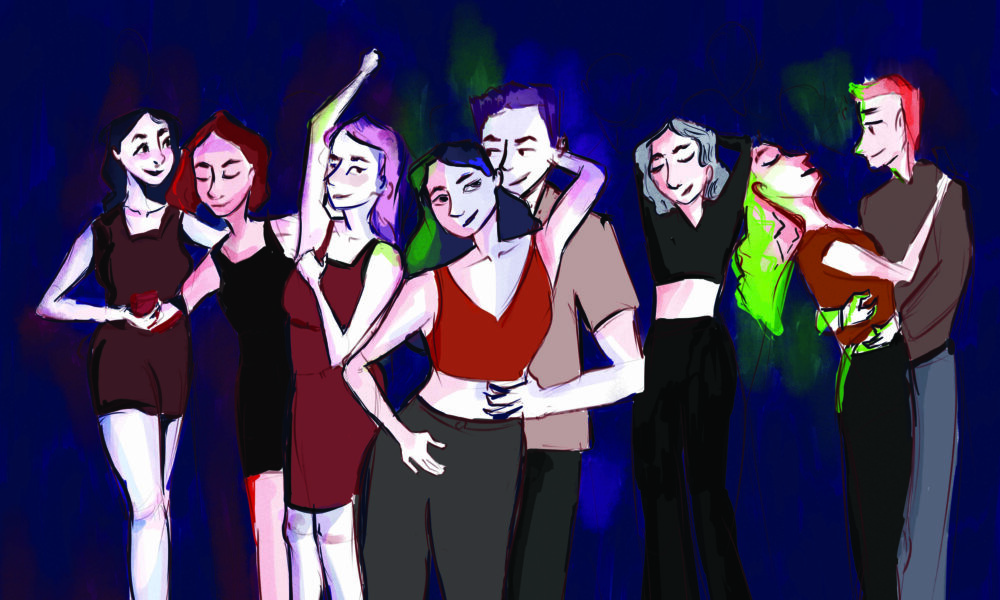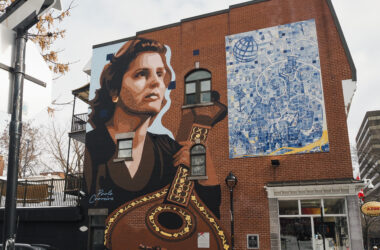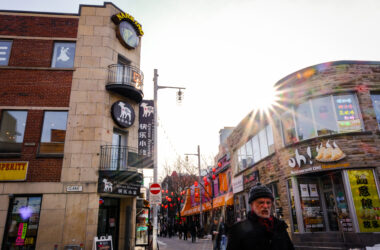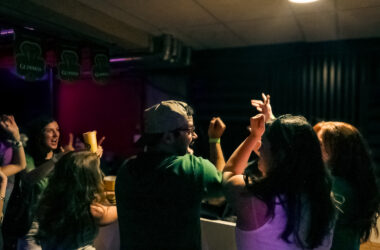While the Quebec government designated Montreal a green zone in June and implemented a vaccine passport system in September, all indoor dancing in Montreal nightlife venues is prohibited. Montreal is one of few cities across Canada with such regulations in place; nearby Toronto and Halifax permit dancing if distanced and masked.
Throughout the pandemic, Legault has avoided mention of nightclubs in public health updates. In response, nightclubs have had to identify their operations as either bars, breweries, taverns, or casinos in order to remain open. Josh Breton, a part-time employee at TRH bar on St-Laurent Blvd, spoke about how the restrictions have influenced their nightclub in an interview with The McGill Tribune.
“It’s changing us into something we’re not,” Breton said of the adaptations the bar has made.
TRH’s space is designed to accommodate dancing and free movement through the room, and has limited seating. To re-open, they had to impose seating onto the dancefloor, resulting in a clumsy configuration.
While TRH bar may have been able to re-open—although not in the way they imagined—Cafe Campus, a nightclub on Prince Arthur just off St-Laurent, has remained closed.
“Our typical mode of operation, that of an interior discotheque with a large, open dance floor, cannot be realized under the current regulations,” they wrote in a statement via Facebook in June 2021. Even under Quebec’s recently integrated vaccine passport system, they remain closed.
Mathieu Grondin, director of MTL 24/24, a non-profit organization advocating for the revival of Montreal’s nightlife, believes that the closure of these venues may be leading to an increase in unsafe, unregulated parties.
“[Students are increasingly turning to] outdoor events in parks, abandoned buildings, [which] rarely enforce sanitary measures,” Grondin said in an interview with the Tribune.
Some students who are sticking to the typical bar scene, such as Sasha Nuttall, U0 Arts and Science, and Lauren Arbuck, U0 Arts, say they are getting bored of their options.
“Boycott Tipsy [Cow]!” Nuttall joked in reference to the bar’s recent popularity among first-year students.
According to Nuttall and Arbuck, first years’ exposure to Tipsy Cow began with the in-person frosh events at the bar. The venue, minutes away from New Residence Hall, has since become a bar that students visit nearly every evening. Other popular destinations include Cafe Frappé and Bar Bifteck. Bar-goers frequently defy restrictions and dance inside the venues anyway, sitting down only when police arrive to check adherence to COVID-19 regulations. Alternatives such as house and frat parties, which consistently flout restrictions and rarely check vaccine passports, have also seemed to increase in popularity.
Nightlife is deeply woven into the fabric of Montreal’s culture and has been for the past century—it remains to be seen how the culture will change over the next few years.








